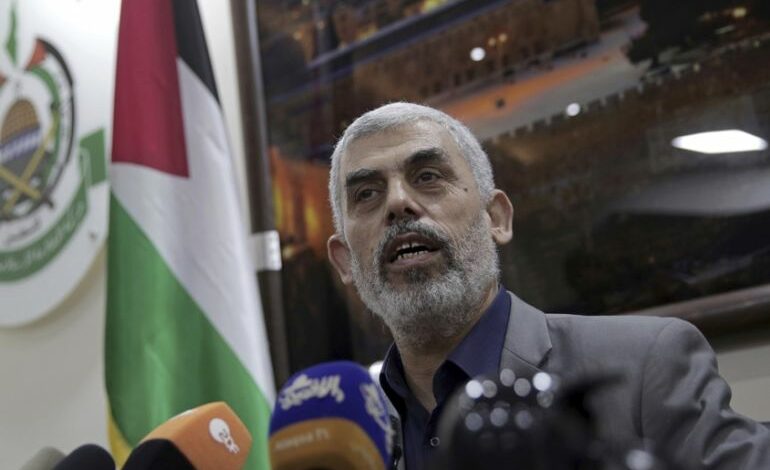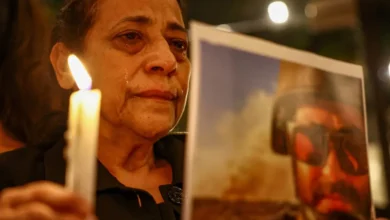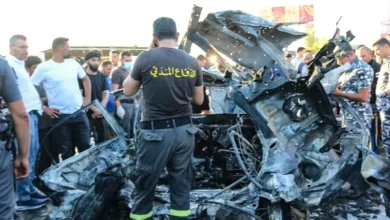Who is Yahya Sinwar, the Hamas ‘mastermind’ in Gaza?

Since October 7, when Hamas’s Operation Al-Aqsa Flood broke through the barrier Israel built around Gaza, stormed Israeli towns, killed 1,200 people and took another 240 hostage, Israeli authorities have had their target on one man: Yahya Sinwar.
Israeli officials say Sinwar, Hamas’s leader in Gaza and a member of its politburo since 2013, was one of the masterminds behind the October 7 attack, along with Mohammed Deif, the commander of Hamas’s military wing the Qassam Brigades, and Marwan Issa, Deif’s deputy. But Sinwar seemingly has the biggest target on his back, as Netanyahu and other Israeli officials have called him a “dead man walking”.
A near-mystical villain
Sinwar, also known as Abu Ibrahim, has myriad stories around him, most adding to the idea that he is a near-mystical villain.
Lieutenant Colonel Richard Hecht, an Israeli military spokesman, called Sinwar, “the face of evil,” while United States President Joe Biden described the attack Sinwar allegedly planned as “sheer evil”. Israeli Prime Minister Benjamin Netanyahu, meanwhile, has warned that if Hamas is not defeated, “Europe will be next and no one will be safe” and has made a concerted effort to conflate Hamas with ISIL (ISIS).
This man painted as “the face of evil” was born in 1962 in a refugee camp in Khan Younis, southern Gaza, to a family that had been displaced by Zionist gangs during the Nakba, or “catastrophe” of 1948. They were from al-Majdal, a Palestinian village razed and built over to create the Israeli town of Ashkelon.
Before he turned 20, in 1982, Sinwar was first arrested by Israeli authorities for “Islamic activities”. In 1985, he was arrested again, and it was during this second stint in prison that he met and became close to Hamas’s founder Sheikh Ahmed Yassin.
Sinwar was drawn to Hamas and, at 25, he helped establish al-Majd, the group’s internal security organisation, which earned him an uncompromising reputation in dealing with Palestinians who collaborated with Israel.
Adding to that reputation was former Shin Bet officer Micha Kobi’s interview with the Financial Times telling of Sinwar boasting to him in the late 1980s about making the brother of an alleged informer bury the accused man alive.
In 1988, at 26, Sinwar was arrested and charged with plotting the murder of two Israeli soldiers and killing 12 Palestinians. He was given four life sentences.
During the next 22 years in prison, Sinwar remained strictly disciplined, learned to speak and read Hebrew fluently and became a leader among the prisoners and a focal point for negotiations with prison staff. An Israeli government assessment from his time in prison described Sinwar as charismatic, cruel, manipulative, content with little, cunning and secretive, according to the BBC.










